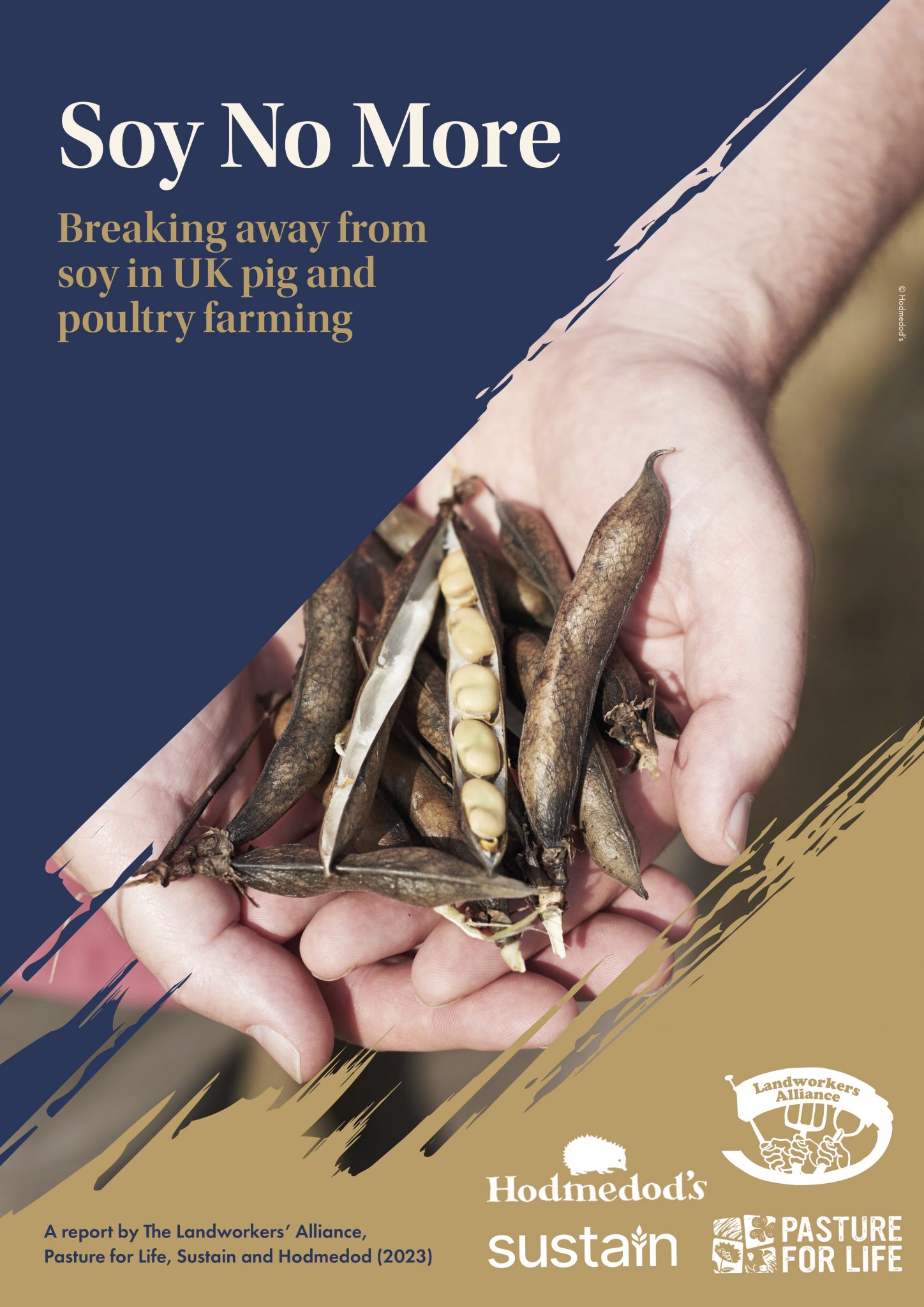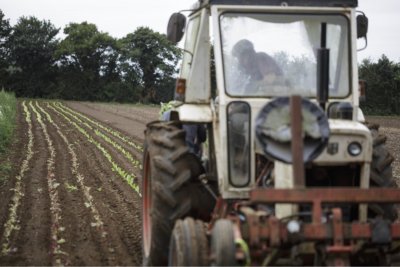News • Sustainable Farming Campaign
New report out ‘Soy No More: Breaking away from soy in UK pig and poultry farming’
A new report ‘Soy No More: Breaking away from soy in UK pig and poultry farming’ has been launched by Sustain, The Landworkers Alliance, Pasture for Life, Feedback Global and Hodmedod. The over production of soy in the Global South is a key driver of deforestation – and almost 90% of the soy that the UK imports goes to animal feed – mainly for feeding chickens in intensive units and pigs on large-scale holdings.

If we want to build a more environmentally just, globally conscious and resilient food system we need to eliminate soy from our animal feed supply chains.
But what would this look like on practice? What are the alternatives? What would the impact on land-use be? How can we avoid food-feed competition? And how would we need to adjust our diets to accommodate these changes?
Our report – a collaboration with Sustain, Feedback, Hodmedod and Pasture for Life – answers these questions and outlines key policy recommendations to support the transition away from soy.
In order to explore the feasibility of replacing soy with alternative feeds, this report models several different scenarios:
- The first scenario models replacing soy in UK pig and poultry feed with home-grown legumes. If we were to keep production and consumption of pig and poultry feed the same as it currently is, our modelling demonstrates that UK total cropland for pig feed would need increasing by an estimated 60%, and for poultry feed by an estimated 78%. Within a context of increasing competition over land-use in the UK combined with the need to become more self-sufficient in food production this is not a realistic option.
- The second scenario takes land-use into consideration, and demonstrates that if we were to replace soy with home-grown legumes without increasing total UK cropland area, then we would need to eat 44% less poultry and 41% less pork. However, with such a reduction of protein in our diets as a result of eating less meat, this would not leave enough room to increase production of plant-based proteins such as pulses which would be needed to supplement the loss of protein.
- The third scenario not only takes land-use into consideration, but also food-feed competition. It explores what might be possible if current UK cropland area was prioritised for growing pulses for human consumption, and pig and poultry were fed on byproducts and food waste inedible for humans; such as heat treated food waste, insect feed, pasture, and co-products from pulse production.
Read the full report for a breakdown of each scenario, and exploration of alternative feeds, and a full list of policy recommendations for government to support a transition away from soy in UK pig and poultry feed.
Published Thursday 22 June 2023
Sustainable Farming Campaign: Sustain encourages integration of sustainable food and farming into local, regional and national government policies.





